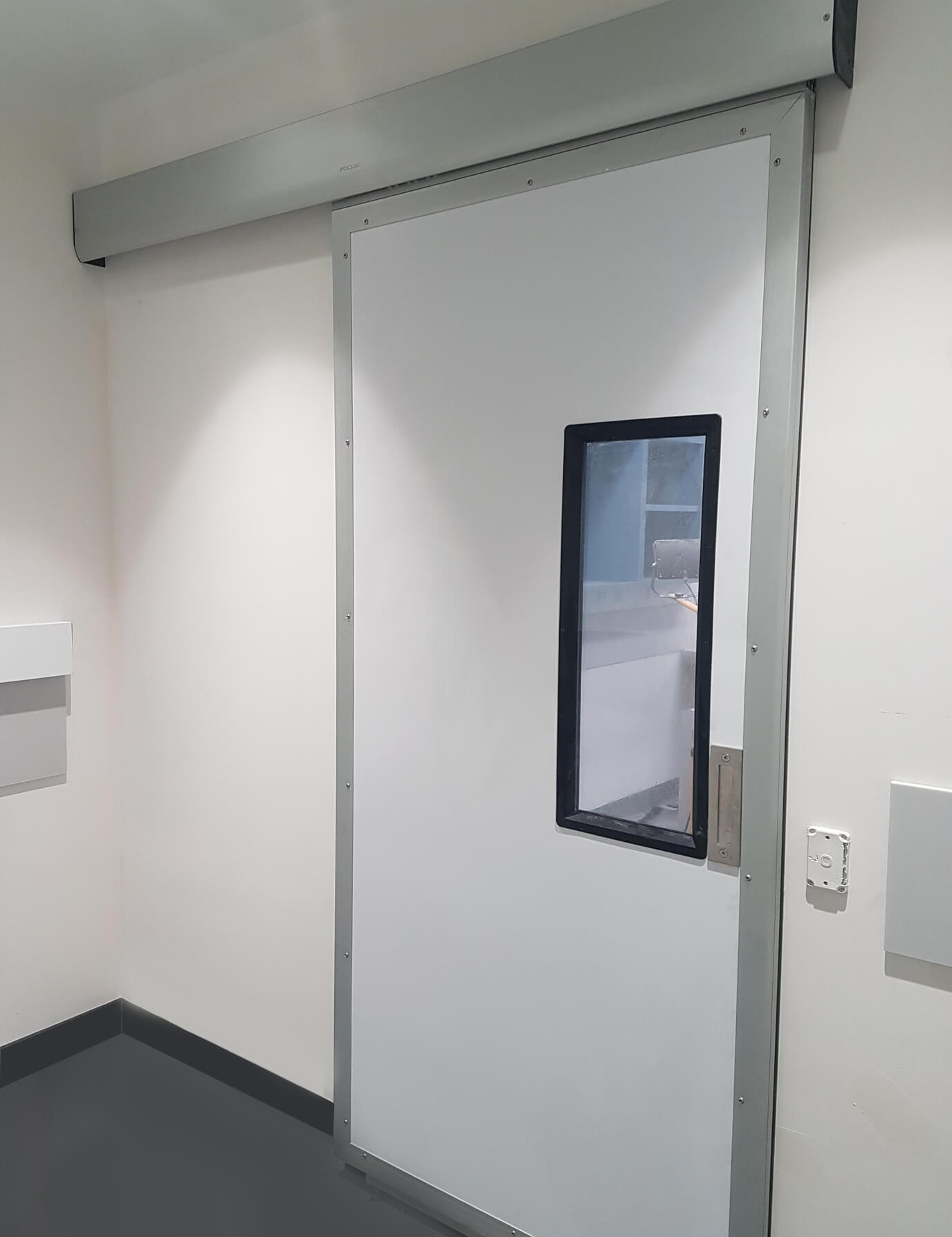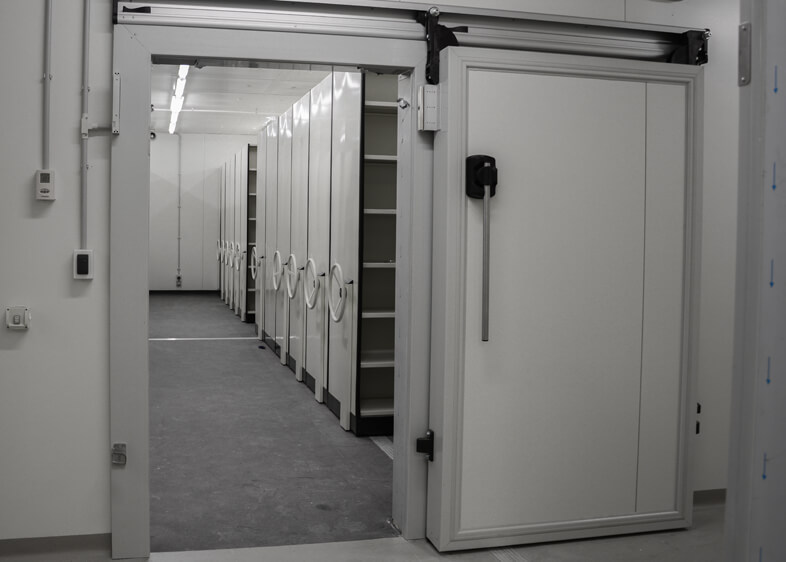The High Stakes of Door Selection
In a healthcare facility, doors serve as more than mere entry and exit points. They are the barriers that control the flow of contaminants, shields that ensure privacy, and tools that play a role in energy conservation. With the rise of superbugs and the ever-evolving challenges of healthcare, the importance of selecting the right doors has never been more important.
The Role of Doors in Infection Control
No matter their size, hospitals are a bustling hub of activity. Every day, countless patients, doctors, nurses, staff and visitors pass through its corridors. Each touch, each interaction, carries with it the potential for contamination. Since microorganisms can be transmitted by contact and be carried through the air, the right doors can significantly reduce the risk of infection.
Hospital doors, especially those leading to and from high-risk areas like operating theaters, ICUs, and isolation wards, are frequently opened and touched.
This makes them potential hotspots for contamination. The right door, designed with hygiene in mind, can act as a barrier, preventing the spread of harmful pathogens from one area to another.
The Psychological Impact of Doors in Patient Care
Beyond the tangible benefits of infection control and energy conservation, doors play a subtle yet crucial role in the psychological well-being of patients. The right door can offer patients a sense of privacy, security, and comfort. For instance, a hermetically sealed door not only keeps out contaminants but also buffers noise, ensuring that patients can rest without disturbances.
Similarly, doors with vision panels allow medical staff to monitor patients without constantly intruding, giving patients a sense of autonomy and dignity. In essence, the doors in a healthcare facility contribute to creating an environment where patients feel cared for, respected, and safe.

Key Considerations When Selecting Hospital Doors
For architects and designers specialising in healthcare, selecting doors is a task that comes with significant responsibility. Several factors need consideration:
- Hygiene Performance: A door’s ability to be cleaned and resist microbial growth is paramount.
- Inorganic Door Construction: Materials that prevent microbial growth are essential.
- X-ray and Laser Protection: Certain areas require doors that offer protection against X-rays and lasers.
- Hermetic Sealing for Clean Air Control: This ensures that clean areas remain uncontaminated.
- Fire and Smoke Regulations: Compliance with safety standards is non-negotiable.
- Automations and Accessibility: In emergencies, doors should be easily accessible and operable.
- Strength, Durability, and Maintenance: A door that lasts long and requires minimal maintenance is cost-effective in the long run.
- Sound Insulation: A quiet environment is conducive to patient recovery.
- Life Cycle Costs: Considering the door’s total cost over its lifespan ensures value for money.
Hermetic Sealing Doors: The Gold Standard
Focus Doors range of Hermetically Sealing Doors, are designed to minimise air leakage. These doors are the gold standard for environments where hygiene and air quality are paramount.
Key Features Include:
- Hermetic Seal: This ensures no air leakage, maintaining the room’s internal atmosphere and preventing the ingress of contaminants.
- Smooth Operation: A door that operates smoothly reduces wear and tear, ensuring a longer lifespan and fewer maintenance issues.
- Hygienic Surface: An easy-to-clean surface is crucial in a healthcare setting, ensuring that contaminants can be easily removed.
- Safety Features: Built-in safety mechanisms ensure that the door operates safely, preventing accidents and injuries.
- Customisability: Every healthcare facility is unique, and having a door that can be customised to fit any opening is invaluable
Understanding Hermetically Sealing Doors
Hermetic Sealing Doors are specially designed doors that provide an airtight seal when closed, ensuring no air leakage between the two sides. The term “hermetic” is derived from the Greek god Hermes and refers to something being completely sealed, especially against the entry or escape of air.
These doors are essential in environments where maintaining a controlled atmosphere is paramount, such as in operating theaters, clean rooms, and laboratories. The airtight seal prevents contaminants from getting in, including dust and pathogens, making them invaluable in settings that demand stringent hygiene and air quality standards.

Selecting The Right Doors
The selection of hospital doors goes beyond mere aesthetics and functionality. It’s a decision that directly impacts the safety, well-being, and recovery of patients. The right door can enhance the overall healthcare experience, ensuring that both medical professionals and patients operate in an environment that upholds the highest standards of hygiene, safety, and comfort.
As healthcare infrastructure continues to evolve, it’s imperative for architects, designers and project managers to stay updated on the latest advancements and integrate them into their designs, ensuring that healthcare facilities are not only state-of-the-art but also patient-centric.
In this high-stakes environment, every choice matters and these choices can impact countless lives. Let’s make them count.

Are you involved in a healthcare project? Ensure you’re making the right choices for your facility.
Contact Focus Doors today on 1300 780 186 to learn more about our range of products tailored for healthcare settings.
Let’s work together to build a safer, healthier future.

